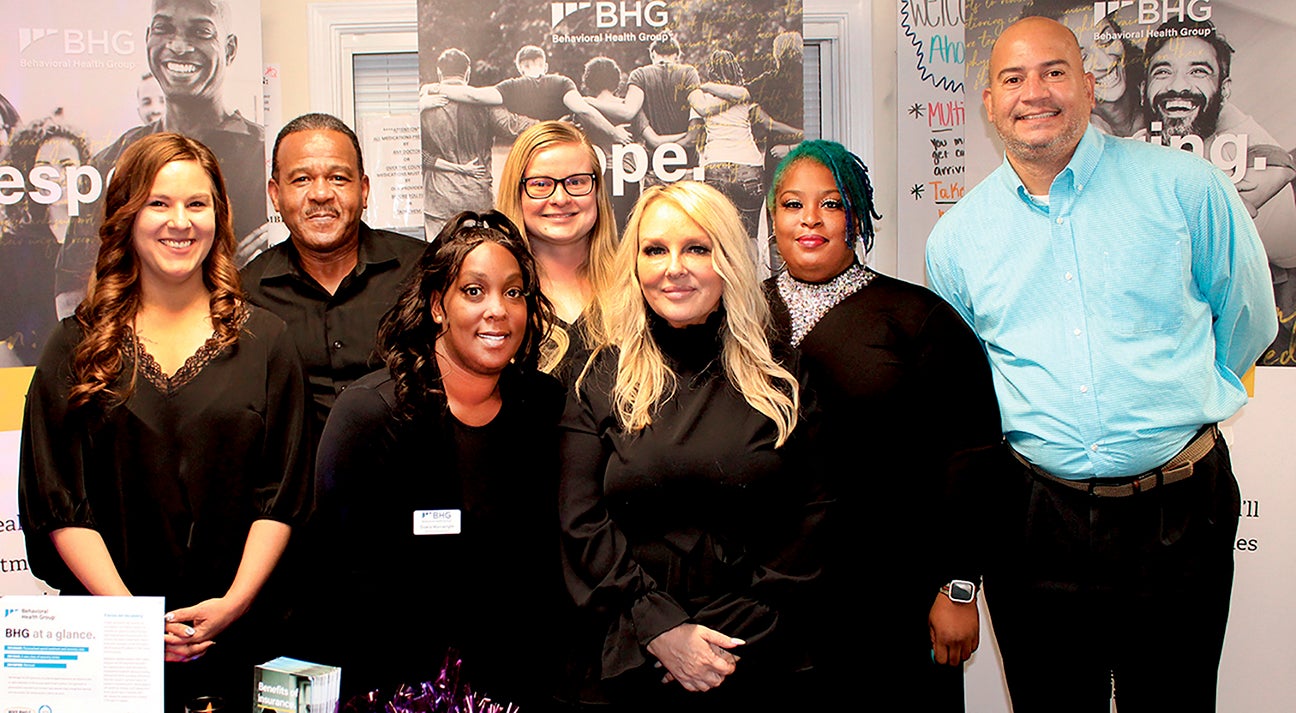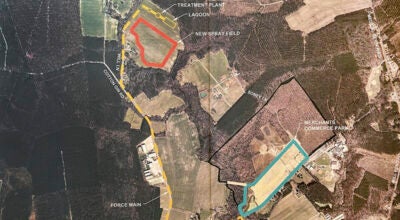Ahoskie Treatment Center opens
Published 5:00 pm Friday, November 11, 2022
|
Getting your Trinity Audio player ready...
|
AHOSKIE – Do you have a family member or friend who “has a problem with drugs?”

The Ahoskie Chamber of Commerce sponsored a ribbon cutting celebration for the Ahoskie Treatment Center on Oct. 28. The business is located at 312 Academy Street. Employees celebrating the event included from left, Brittany Howell, NP; Jimmy Vaughan, CADC-R Clinician; Diakia Wainwright, RN Nursing Supervisor; Delana Holland, LPN; Charla Huff, LCAS, CSS-I, Program Director; and Jerry Roth, LCAS-A, Counseling Supervisor. Staff Photo by Holly Taylor
Now, more than ever, substance use has become an unwelcome piece of woven fabric in our society. In particular, those who are trapped in the vicious cycle of opioid use are more aware of the growing numbers within the opioid epidemic that has negatively impacted socio-economic and familial structures within society. Opioid dependence is often an unpleasant subject that is attached to a public stigma often associated falsely with the idea that it describes a condition related to those who exhibit drug seeking behaviors and that the person can abstain from using substances based upon their own ability to utilize self-control.
Why are people “choosing” to use opioids? Opioid dependence occurs when the body reaches a level of adaptability in which it relies on an opioid to prevent withdrawal. Mental health can certainly play a role in initial use, as a younger generation seeks to numb the pain caused by emotional, mental, physical or sexual abuse. Sometimes, the “harmless pain pill” use may begin by a well-meaning, trusted family member sharing an opioid medication.
Opioids flood the brain with dopamine, a chemical that provokes reward circuits in the brain, encouraging the individual to repeat use. However, a lesser-known etiology narrative is that opioid use often begins as “just a pain pill” that may have been prescribed by a trusted physician. For example, have you ever been prescribed oxycodone, hydrocodone, morphine or fentanyl? Opioid dependence can develop after a prescription for a long-term sustained injury, with developing dependence unaware even to the individual taking the medication, until the prescription is terminated, the individual ceases use and withdrawal symptoms such as anxiety, nausea, diarrhea and bone pain. These types of etiologies of opioid dependence are common and often ignored by family members as the individual becomes trapped within a cycle of shame and illness which largely affects their ability to manage daily needs.
Abdominal cramping, appetite loss, anxiety, agitation, body aches, diarrhea, dilated pupils, elevated heart rate, high blood pressure, irritability, nausea and vomiting, sweating, watery eyes, yawning, and runny nose are all often symptoms associated with opioid withdrawal. Behavioral patterns such as sleeping and slurred speech, increased amounts of financial spending, and lack of hygiene can become prominent signs of opiate use as increased amounts of opiates are required in order to avoid withdrawal.
Adversely, the need to increase amounts of opiates compels an individual to engage in risky behaviors, often seeking heroin and fentanyl use when pill forms of opiates aren’t available in amounts to prevent withdrawal.
Finding a modality for treatment of opioid dependence is often a daunting task not only for the individual but also for the family member. Medically Assisted Treatment (MAT) which utilizes both agonist and antagonist medications to normalize brain chemistry, block the euphoric effects of opioids, reduce cravings, and normalize body functions without euphoric effects of the substance used, is often a successful choice for individuals who have experienced long term opioid dependence. Combined with therapeutic interventions and medication, MAT has been utilized to save lives and prevent overdose of opioids when a person reaches dependence.
Ahoskie Treatment Center (owned by Behavioral Health Group) located at 312 Academy Street in Ahoskie offers medically assisted treatment for opioid dependence combined with counseling services to assist individuals along their journey to recovery. For more information, call (252) 513-8544.


